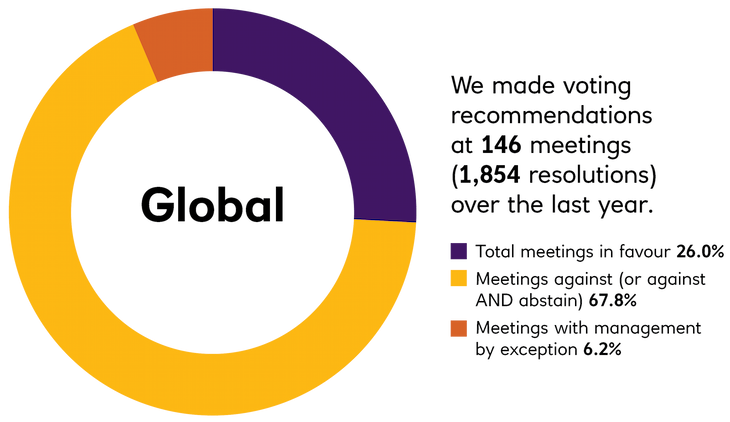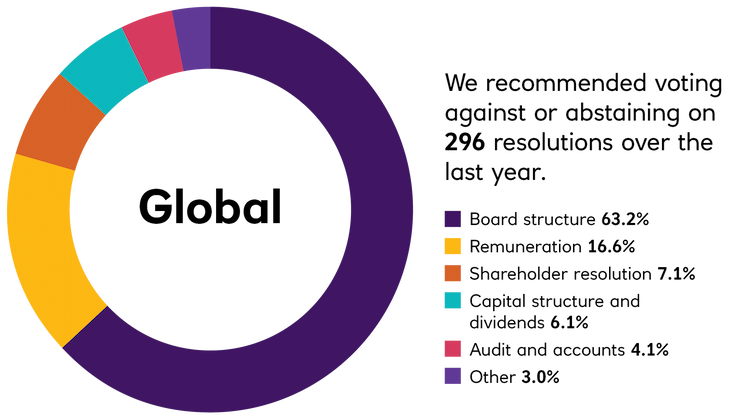Engage and vote
The Trustee has exercised its ownership rights and engaged with investee companies in quoted equities and investment grade credit through its stewardship manager, EOS. Listed equities were held in the portfolio for some of the reporting period. Engagement work carried out with EOS is in collaboration with other EOS clients and is based on mutually agreed priorities in the EOS engagement plan. This is more efficient and effective than attempting to engage as an individual investor. Engagement in private investments takes place through the relevant investment managers or board representation.
The EOS Annual Voting and Engagement Reports for the Fund are made available on the Trustee website and a summary of this activity is set out in the Fund’s implementation statement. The key points to note from voting and engagement activity in 2022 are set out below (with 2021 activity shown for comparison).
EOS Engagement by Region
In 2022, we engaged with 255 companies on 1,336 environmental, social, governance, strategy, risk and communication issues and objectives. Our holistic approach to engagement means that we typically engage with companies on more than one topic simultaneously.
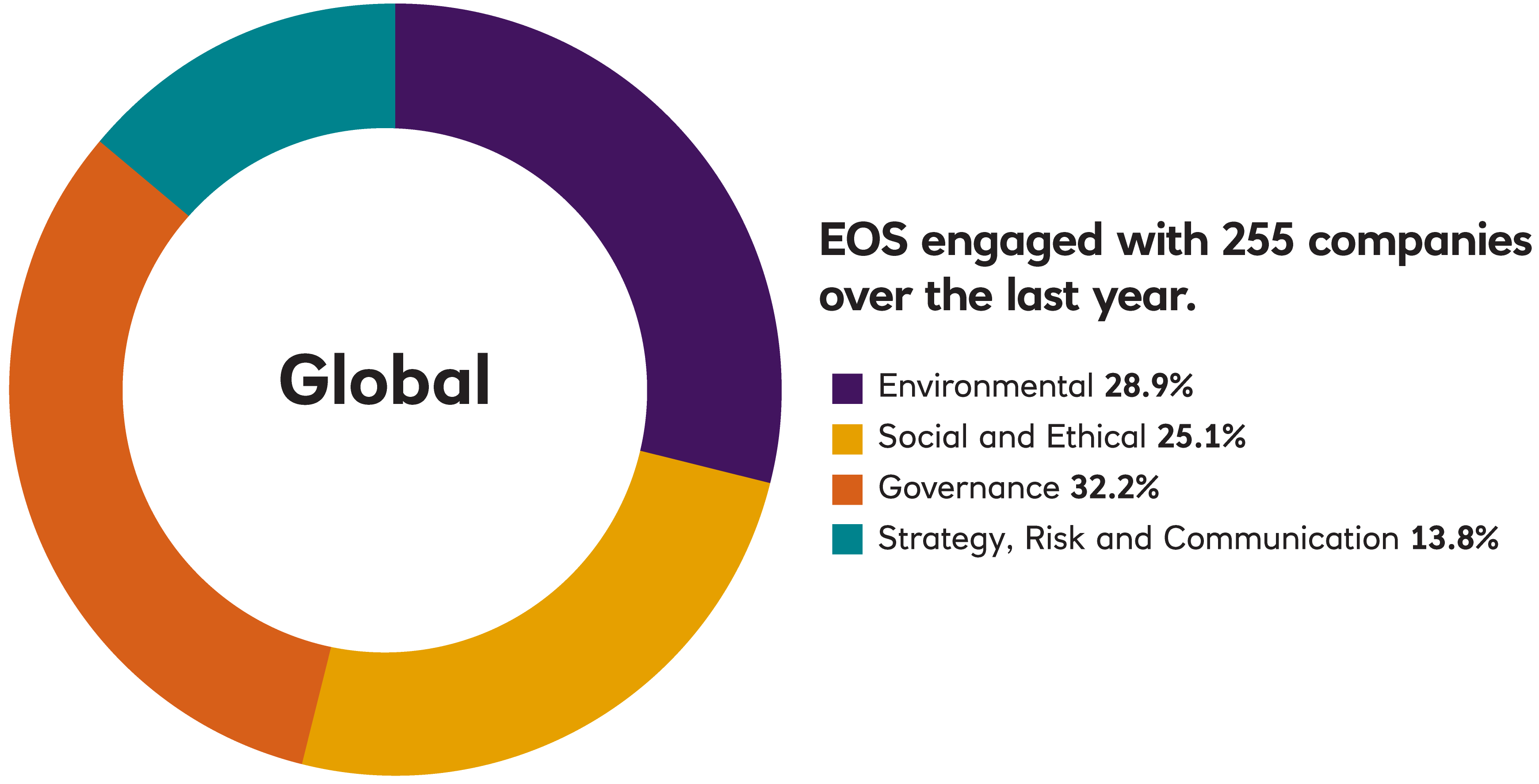
In 2021, we engaged with 242 companies on 1,132 environmental, social, governance, strategy, risk and communication issues and objectives. Our holistic approach to engagement means that we typically engage with companies on more than one topic simultaneously.
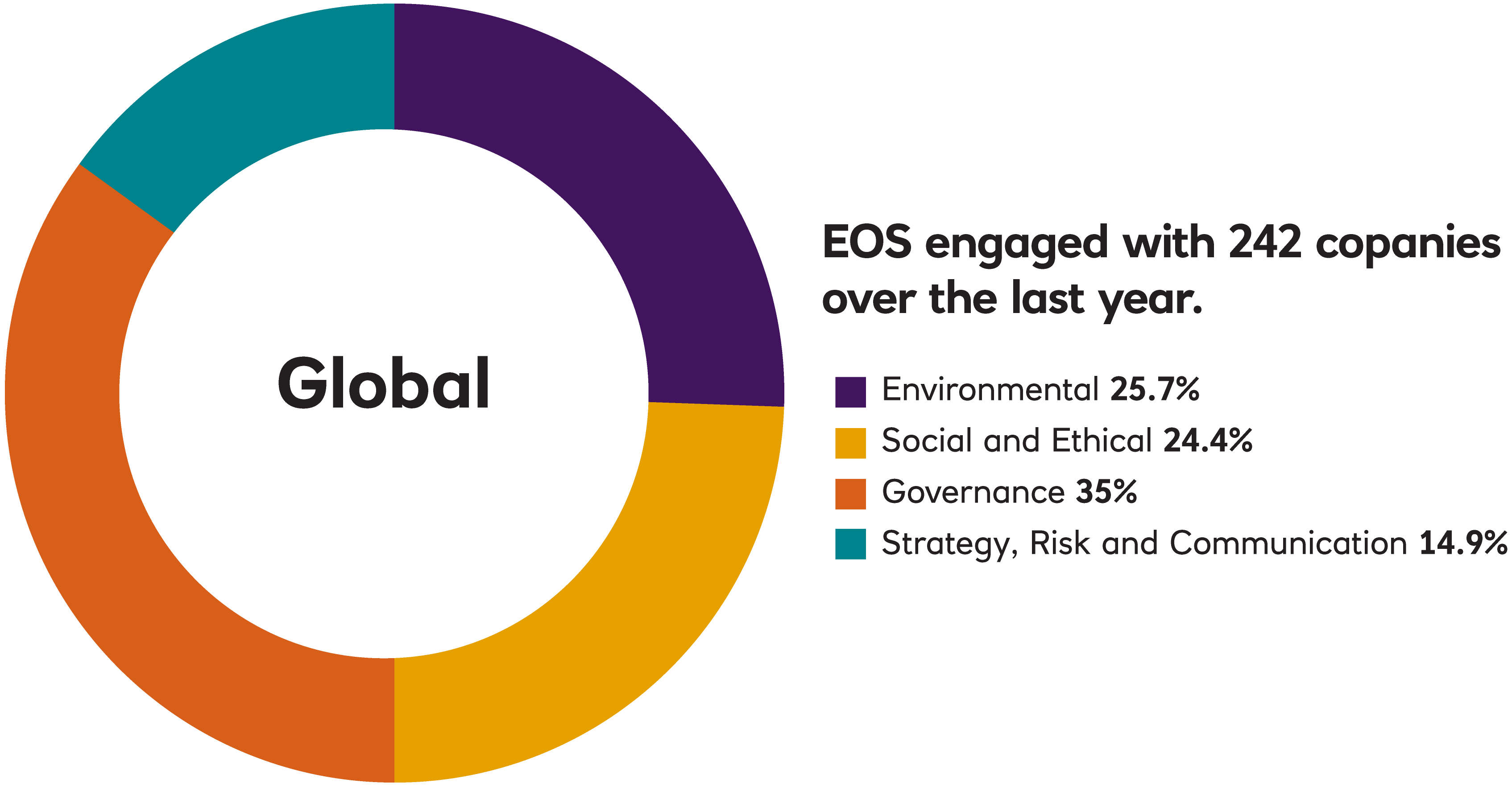
EOS Engagement by Theme
A more detailed analysis of the engagement issues and an analysis of progress on these issues over time, along with further case studies, are included in the EOS annual reports . The focus of engagements reflects client priorities that are included in the engagement plan. The engagement process is monitored by EOS based on four milestones, beginning with initial awareness and culminating in the implementation of a strategy to address the engagement issue. Milestone progress in the reporting period is shown below:
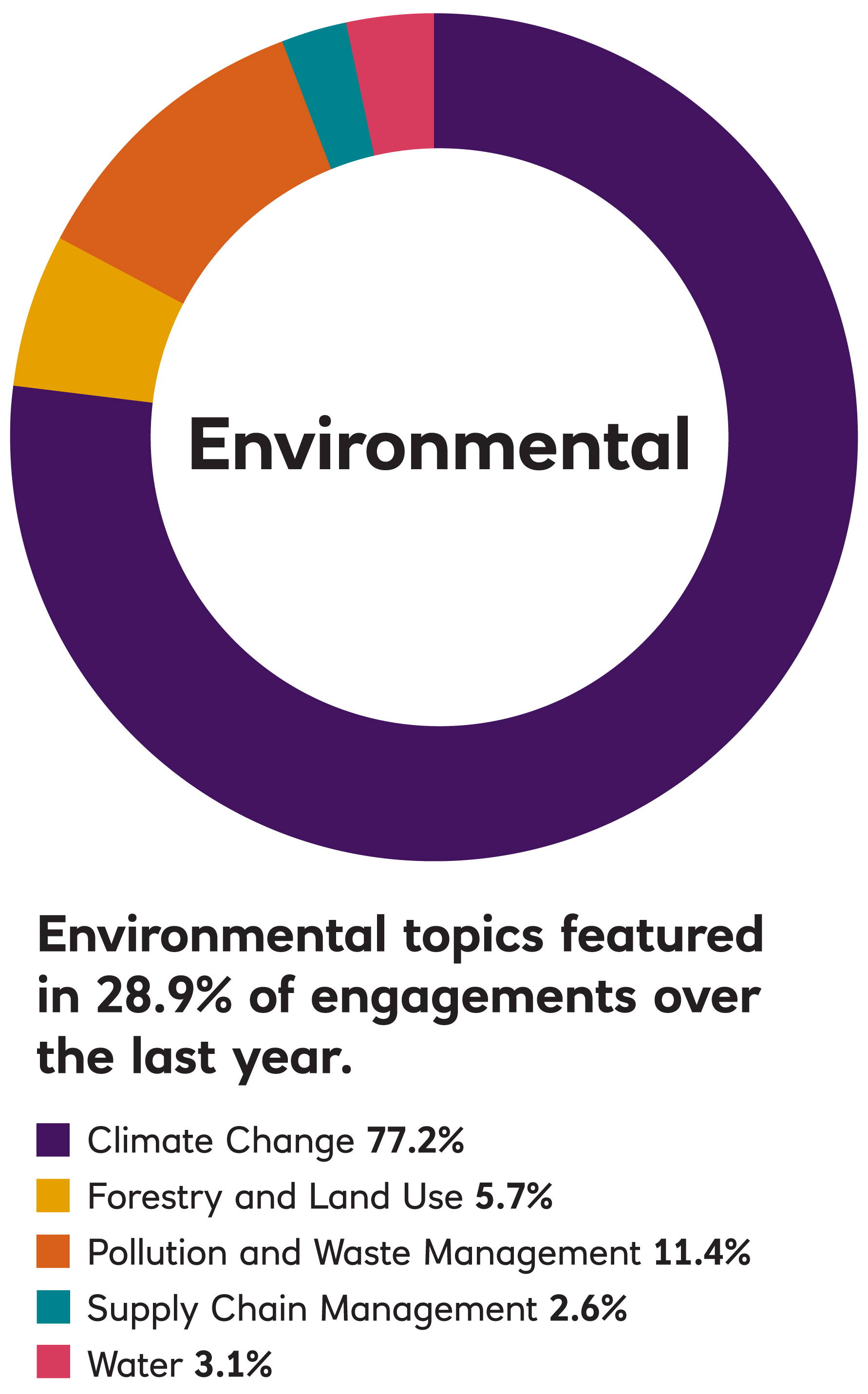
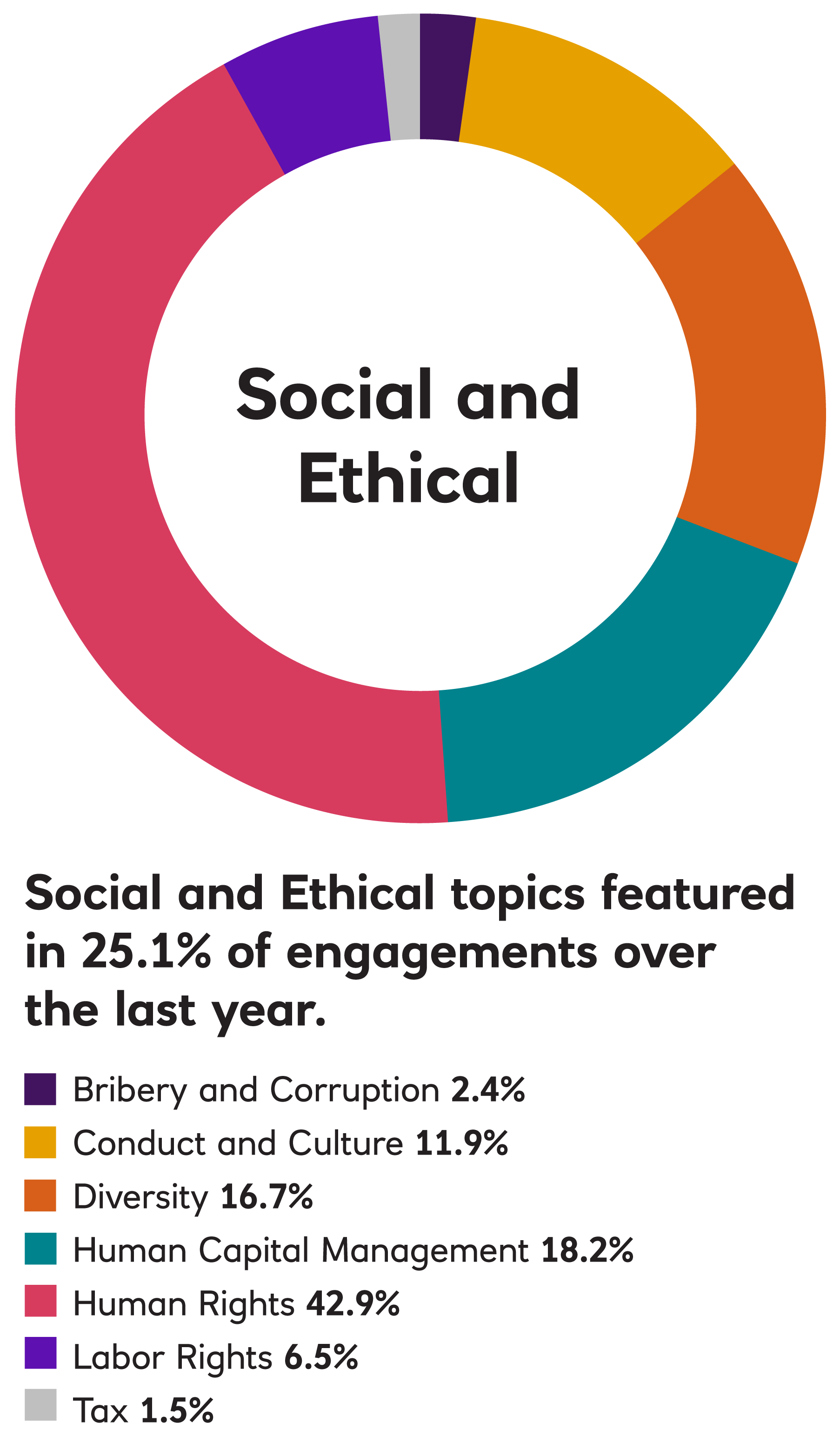
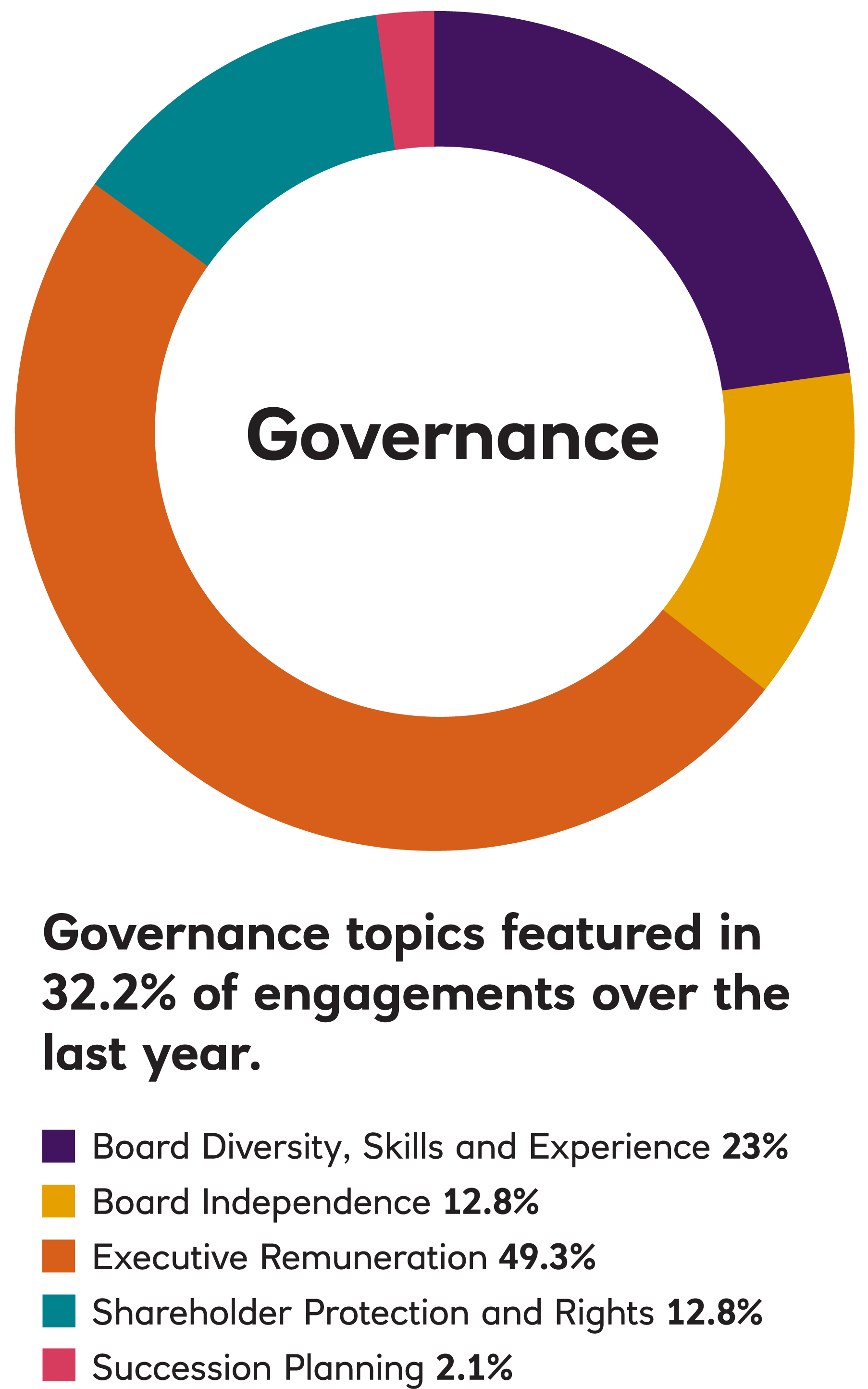
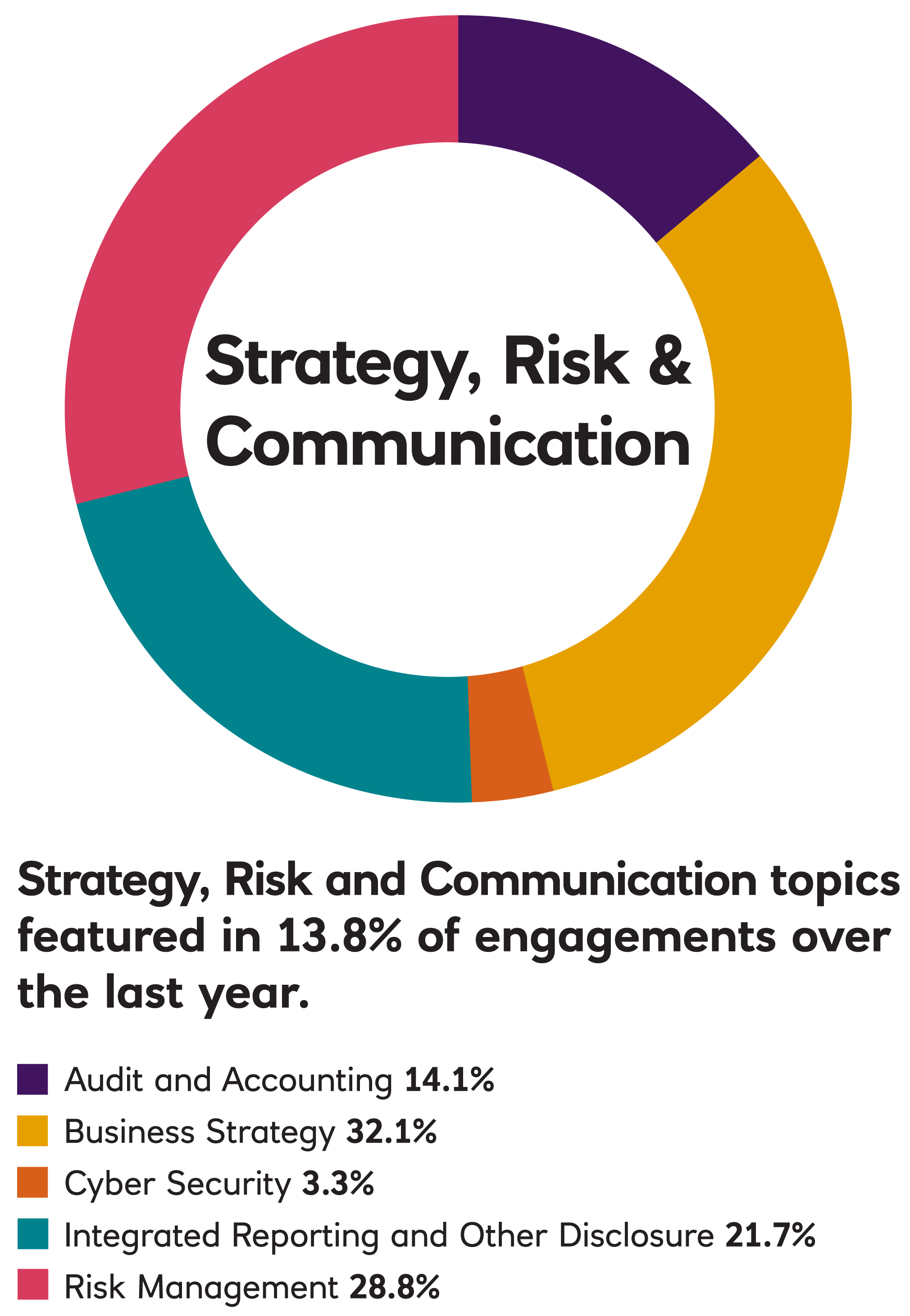
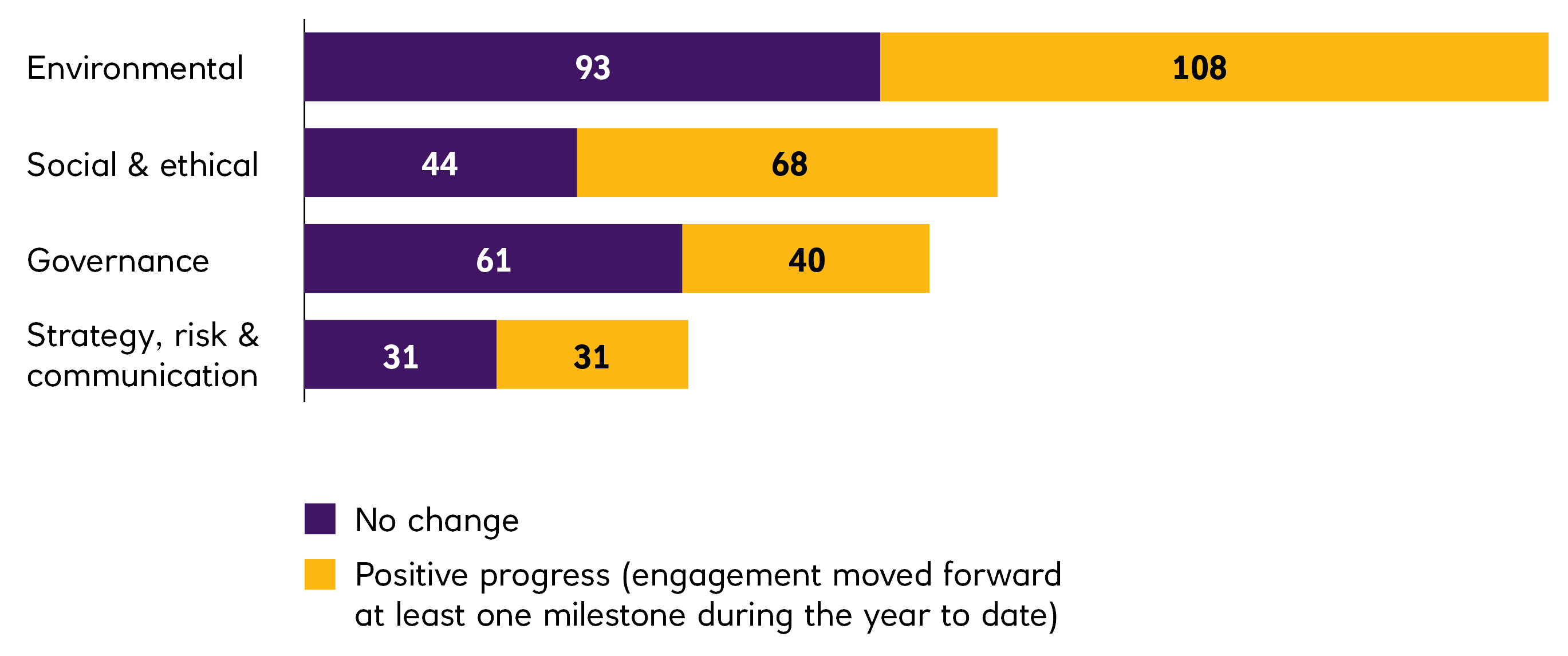
A more detailed analysis of the engagement issues and an analysis of progress on these issues over time, along with further case studies, are included in the EOS annual reports . The focus of engagements reflects client priorities that are included in the engagement plan. The engagement process is monitored by EOS based on four milestones, beginning with initial awareness and culminating in the implementation of a strategy to address the engagement issue. Milestone progress in the reporting period is shown below:
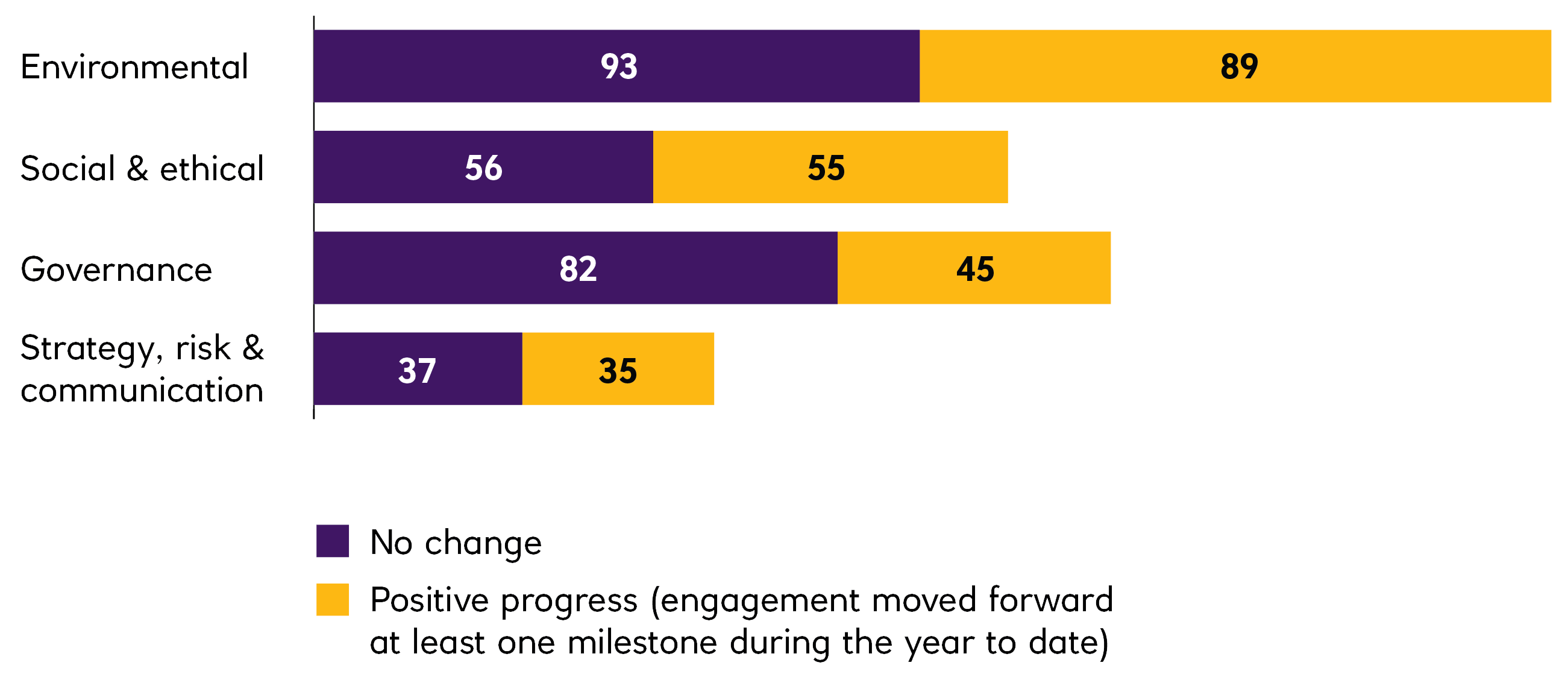
Case studies
Significant engagement case studies for EOS in the reporting period include the following:
-
Tesco
EOS spoke to Tesco to follow up on its correspondence regarding living wages for its workforce. EOS probed workforce pay in some detail, questioning how the company was satisfied that pay was competitive when its London workers have a lower base rate than almost all Tesco’s peers. EOS reiterated its support for Living Wage Foundation Accreditation or for Tesco to demonstrate that its package is equivalent in value and equivalently valued by employees. The company is currently in negotiations with unions so was restricted in what it could say, but it made the case that it prioritised what the unions – and therefore employees – prioritised. This included guaranteeing a minimum number of hours per week and various bonuses, rather than base salary alone. EOS also requested further engagement on climate, particularly Scope 3 emissions, although it appears these emissions are included in a 2030 target currently undergoing Science-Based Targets initiative (SBTi) approval.
-
Nestlé
EOS met with Nestlé’s company secretary to discuss governance issues and its ongoing operations in Russia. EOS challenged the company on its operations in Russia given the ongoing war with Ukraine. Nestlé said that it continues to run its operations in Ukraine and to provide Russia with essential goods such as baby formula. It added that it will not make a profit from its operations in Russia and will exclude this from financial reporting. EOS asked the company which products were considered essential and still sold in Russia. The company secretary was unable to give these details, but said there was an internal list, and the board was accountable for the selection of these products.
-
Apple
EOS have become concerned about allegations of sexual harassment at Apple. They asked for an assessment identifying issues that may lead to sexual harassment and discrimination. They asked the company to identify issues and take appropriate steps to increase inclusion and also encouraged a more empathetic and victim-centred approach to sexual harassment, discrimination and retaliation concerns and noted that there may have been inadvertent bias in the interpretation and application of policies that require human judgement. EOS also encouraged greater disclosure of mechanisms that convey employees’ concerns directly to the board, especially on Diversity, Equity and Inclusion, harassment, retaliation and unionisation.
Voting
Key voting policies were applied during the reporting period in an attempt to effect management change.
EOS reported that the 2022 shareholder meeting season saw social issues rise up the agenda with resolutions on everything from animal welfare to paid sick leave and reproductive rights. Meanwhile, as soaring inflation eroded the purchasing power of take-home pay, investors pressed for living wages for struggling workers. It was also the second year for formal shareholder votes on companies’ responses to climate change, with a steep rise in management Say on Climate proposals, and new votes at BP, Anglo American and Rio Tinto. Shell and TotalEnergies also offered a chance to vote on the progress achieved since the 2021 proxy season.
Read more
Climate voting gained momentum in 2022 following its debut in 2021. EOS provided recommendations on 58 Say on Climate proposals from management teams, asking investors to approve transition plans or providing an annual update on already-approved plans. EOS also started to assess the integration of climate-related considerations into some companies’ financial accounts and audit practices. EOS took a robust approach to assessing companies’ climate transition plans, recommending voting in favour of those believed to be substantially aligned with 1.5°C. This included cases where the company clearly indicated that alignment was the goal, with a more developed plan to be put to a further vote, such as at NatWest and Amundi.
EOS recommended opposing the plans at Shell, TotalEnergies and Standard Chartered where climate ambition was materially below EOS’ sector-specific expectations. At Barclays and Standard Chartered, EOS engaged with management after identifying areas that fell below their 1.5°C-aligned expectation. Following discussions, Barclays published a late clarification of its climate plan, emphasising its commitment to targeting 1.5°C portfolio alignment, which ultimately prompted EOS to recommend support. Standard Chartered failed to make further commitments to improving its coal policy or its methodology for setting decarbonisation targets, which led to EOS recommending a vote against its plan.
EOS focussed more on diversity and inclusion voting policies, encouraging greater representation of women and ethnic minorities on boards and in leadership teams. Globally, EOS recommended voting against 2,920 proposals due to diversity concerns, versus 2,693 proposals in 2021. In the US, where EOS expects women and ethnic minorities to make up at least 40% of the board at the largest companies, with a minimum of 30% gender diversity in line with our support for the 30% Club, EOS opposed 1,033 proposals for insufficient gender and ethnic diversity. This included at Berkshire Hathaway, Amgen, United States Steel, Sinclair Broadcast Group, FreeportMcMoRan, Kinder Morgan, Dollarama and NextEra. In Europe, EOS continued to push for greater gender diversity on boards and in leadership teams and opposed companies that did not meet minimum expectations. This included at miners Antofagasta, where EOS opposed the nomination committee chair for poor board gender diversity, and Fresnillo. EOS enforced its guidelines for ethnic diversity on UK boards and were pleased to see great progress by FTSE 100 companies in meeting minimum standards of representation. EOS continued to oppose chairs where this was not the case, for example at DS Smith. Overall, in the UK, EOS opposed 19 proposals for concerns about insufficient diversity, including gender diversity, at board level and below, versus 37 proposals in 2021.

